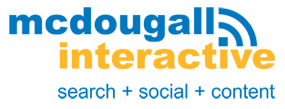 John Lennon once said “If we want one, I sit down and write us a swimming pool”
John Lennon once said “If we want one, I sit down and write us a swimming pool”
That is the power of a great writer. The ability to generate income in a heartbeat.
The most powerful business writing tips that will enable you to generate instant income are more about persuasion and influence than being witty or crafty.
I grew up reviewing advertisements that my father’s agency created. Some were downright ingenious and others perhaps a tad bit cheesy. The days of the Madmen certainly had their moments with creative and compelling copywriting but some of it was more about getting people’s attention than sharing information. They had the luxury of a fairly captive audience.
While the Internet has brought about a lot of change in the way we digest content, many of the rules of what makes writing powerful are timeless. If you don’t study the psychology of writing persuasively, your content will be merely creative. And if you don’t write on a regular basis, you might as well not exist in the world of experts.
The writing tips that follow will get at the heart of what makes people compelled to hire you and will help those looking to boost their expert status.
These tips came from my attending the Authority Marketing Summit with Dan Kennedy. Dan has been called the “millionaire maker” and has generated tens of millions of dollars for services companies but also for products like Weight Watchers.
Business Writing Tips to Help Grow Your Empire
- Write a lot or you are not perceived as big
Dan says that he essentially wrote himself into existence and without writing regularly he would never have generated tens of millions of dollars in income as a marketing expert.
Everybody perceived as big by their audience has a robust, expansive, comprehensive media “ecosystem” of their own, typically integrating off-line and online: off-line including newsletters, magazines, books, information products, catalogs, annually or periodically updated resources, and much more; online including websites, members only sites, written word items, video items, PowerPoint slide presentations, introductory (free preview) courses, e-zines, e-books, email, catalogs/e-commerce stores, and more. If you do not have this, you aren’t BIG.
Even though it is pretty easy to create a book these days, people will assign significant authority to you if you have a book and a media “ecosystem”.
Dan writes 365 days year. One hour a day minimum. He only takes a break occasionally on the road and has had this discipline for many years. He also has Copywriting gigs commanding $500,000+.
- Don’t worry about book royalties
The money you make from selling services and more expensive information products will generally far exceed any royalties you will make from selling a $20 book.
- Pick an audience
Writing gets easier when you know exactly who you’re writing for. Developing personas such as “business owner Bob” and having a picture of Bob on your wall when you are writing can help you be more persuasive.
Find out what group will pay you the most and write to them only. If you want to resonate better with baby boomers who have more money than millennial’s, then write specifically to them or your message will be watery.
Welcome criticism from the people you are not targeting. It may just be a sign that your message is resonating beautifully with someone else.
- Make yourself into a dramatic character
It’s important that people understand who you are in black and white. You are much more magnetic and interesting when you stand for something specific and are an icon of that cause.
Embellish yourself and be that persona.
Chris Brogan for example once said that he feels that the weirder he acts, the more fans he gets. When I saw him at the CopyBlogger – Authority Rainmaker Conference, he literally tossed the podium aside, almost smashing it and said “I hate podiums”. This is not merely a spontaneous act. It is a conscious effort.
- Pick a science, a system and methodology
Life can be chaotic and overwhelming, so people need ways to make it more streamlined. Having a system helps people more easily follow along with your ideas.
An example of a system is the 7 Habits of Highly Effective People by Stephen Covey. Your system will help brand you and differentiate you from others.
- Pick a philosophy and philosophical position
It’s not enough to have a system. You also need to show how you see the world and get people to buy into your philosophy.
Steve Jobs clearly had a passionate view that things like the iPhone should be easy to use on the go and really cool. If people connect with you emotionally on things like this you’ll have a stronger brand. That type of the connection doesn’t come merely from tactics and is how you create raving fans.
It’s less about teaching and more about your philosophy.
- Pick a back story and a reason why
Dan recommends that you study popular characters such as James Bond and Sherlock Holmes and he says: “The entire industry that makes authors wealthy is based on building a character.”
People want to know that you feel their pain because you have been through it and have a good reason for doing what you do, such as wanting to keep people from making the same mistakes that you made. That is part of your hero’s journey and documenting it in detail will help them aspire to be like you.
Batman’s origin story is key to his actions being acceptable. You are a super hero and your team is like the Justice league of America.
Another example of a heroic character is our current Pope Francis, who has an incredibly in-depth back story that is told over and over again. Tony Robbins and Dr. Phil are others examples of dramatic characters that will cause psychologists to fight.
Dan says that two key traits of influential people are:
- Writing yourself into existence as well as having others write about you and
- Giant heroic character development.
- Write conversationally
Write the way you speak and you will resonate better with your audience. If you are funny, leave it in. If you are intense, leave it in. Don’t let people “fix” you so much that your character and distinctive voice is lost.
- Pick your media
It’s important to think about what types of media you will be involved with. Ignoring off-line media can be a big mistake as people still associate a lot of authority with it. These are some of the media to consider.
- Books / eBooks
- Printed Newsletters
- Direct Mail
- Magazines / Newspapers
- Local and national television
- Information Products
- Online / Digital Media
Having a repeatable statement document that lays out your philosophy concisely is a big part of your media platform. It illustrates your who, what and why you do it. This interview with Dan has a lot of his statement document in it.
Once you select the media you will focus on, start writing for it and connecting with journalists via social media.
- Create a printed newsletter
Dan attributes a significant amount of his success to having a printed newsletter. He has no consulting clients that don’t do a physical newsletter.
It’s your refrigerator door where you can highlight content, media features, clients and strategies. It’s a stealth sales vehicle.
Dan breaks his newsletter segments into three categories
- Customers
- Leads
- General
Email content updates and newsletters are fantastic but there is a certain amount of power in sending a printed item that can’t be ignored.
Dan joked about how hard it can be to get people to your online assets and the competition you have compared to sending something in the mail, which many people are no longer doing. He also mused that the competition for eyeballs online includes things such as:
- Kim Kardashian’s butt
- Food porn
- Weather porn
- Travel porn
- Donald Trump
- Disney
- Reality TV
- Redneck housewives
- Things being blown up
Call him an anti-Internet curmudgeon if you will but he makes an interesting point about solidifying your authority in physical printed words.
- Tell the same stories over and over
If you have stories and testimonials that work, use them over and over again. Before and after stories are powerful, especially when in printed media and not just online. The more specific they are to your audience, the more powerful they will be. For example women trust nurses more than doctors and so a testimonial from a nurse will be highly persuasive and great for skincare promotion. A Pastor is a great testimonial for Miracle Ear etc.
- Get your writing featured in niche trade journals
Having your tips and writing featured in niche trade journals is highly persuasive and can lead to direct conversions.
- Uncover what’s next and curate
You need to be the first finder of content in your niche and share it on social media and in your writing.
- Five things you want people to know about you
Document the five things that you want people to know about you and repeat it in your writing. Also have the media repeat it frequently.
For example, Dan’s are:
- Expensive but worth it
- Hard to get to
- Difficult/prickly
- Clients trek to him and not the other way around
- Most clients stay forever including legendary clients
These items should be the foundation for all of your writing and help you to win big. Dan suggests that you “have the list ready and by your side when you write and repeat it over and over, so that people can’t not get it.”
- Write with authority and write as an authority
Writing with Authority: People want certainty and if you write as though your way is the only way to do things, then it will come across as more authoritative.
Writing as an Authority: Having a book and frequent media appearances can help you to write as an authority.
- Get paid well and here’s how
The following are some of the ways you can make money as an information expert.
- Sell Services
- Sell physical products: own, rent, license
- Sell exclusivity and ancillary products such as rock stars selling T-shirts
- Sell advertising in and around your information products
- Tie services to your information products and give commissions
- Sell tickets to events
- Marry #4 and #5
- Donations
- Crowdfunding
Place yourself at the center of a media universe and your payday will be larger.
Only as an authority capable of prolific influential writing can you place yourself in the center of many planets in orbit, each referring to you.
The best way to build a deep audience by far is to have various media and communities sending their best potential customers to you.
For example, circling around Dan are the following:
- The company he sold previously (GKIC) and the media and affiliates of that company.
- Entrepreneur magazine and the media and bookstores like Amazon / Barnes & Noble selling his Entrepreneur series.
- Co-authors and the media lists and email lists that they have.
- Influencers such as his partner Advantage Media Group and their media lists / email lists.
A true authority will have a large universe of contacts such as this that will send them business and only then will they elevate to a seven-figure empire.
Conclusion
As Tim Orielly – one of the largest tech book publishers says: “Obscurity is a far greater threat to authors than piracy”.
If you want your business writing to make an impact, you need to become famous at least in a niche beyond your paying customers.
Dan adds, “Fame won’t make you rich, but you can’t get paid without it”.
It’s not impossible to go from six to seven figures a year as an expert but Dan says you will need to go beyond the rational and into the realm of fame and status to take your business to the next level.
The average book sells less than 2,000 copies. Your first book is therefore not going to be a cure-all and is just one part of your overall strategy.
Beyond a book you need a larger media platform that is a gestation place for prospects to hang around until they are ready to buy.
What steps are you taking to build your business fame and consistent media that you publish?
 John McDougall: Hi, I’m John McDougall. Today, we’re talking about leveraging your thought leadership and building authority in digital marketing. My guest is Neil Patel, founder of Quick Sprout and co‑founder of Crazy Egg, Hello Bar, and KISSmetrics.
John McDougall: Hi, I’m John McDougall. Today, we’re talking about leveraging your thought leadership and building authority in digital marketing. My guest is Neil Patel, founder of Quick Sprout and co‑founder of Crazy Egg, Hello Bar, and KISSmetrics. Neil Patel: Thanks for having me.
Neil Patel: Thanks for having me.
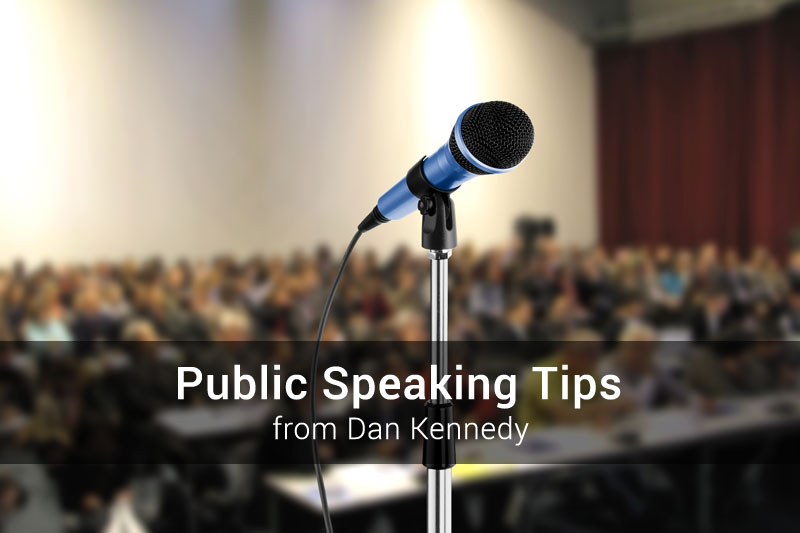
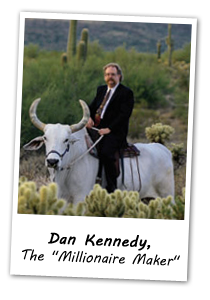 Public speaking cannot only get you new customers and national level recognition but if you follow the advice of Dan Kennedy and information marketers, you can sell an enormous amount of products to supplement or even be your primary income.
Public speaking cannot only get you new customers and national level recognition but if you follow the advice of Dan Kennedy and information marketers, you can sell an enormous amount of products to supplement or even be your primary income.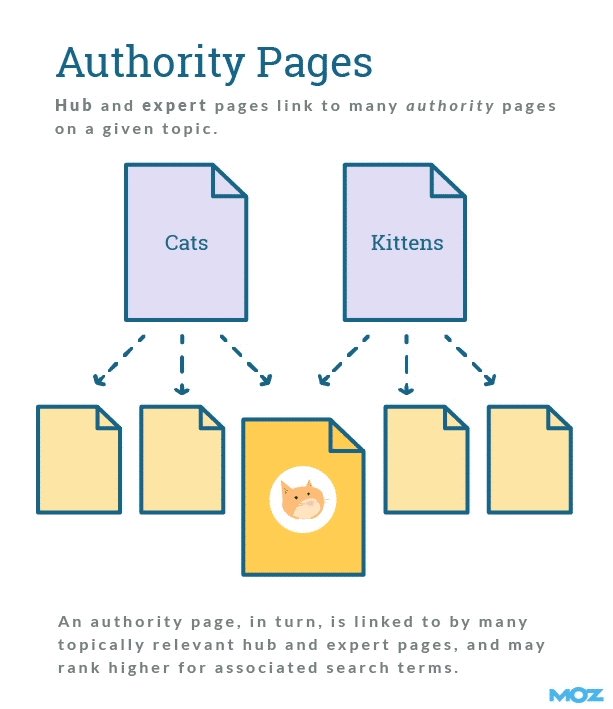
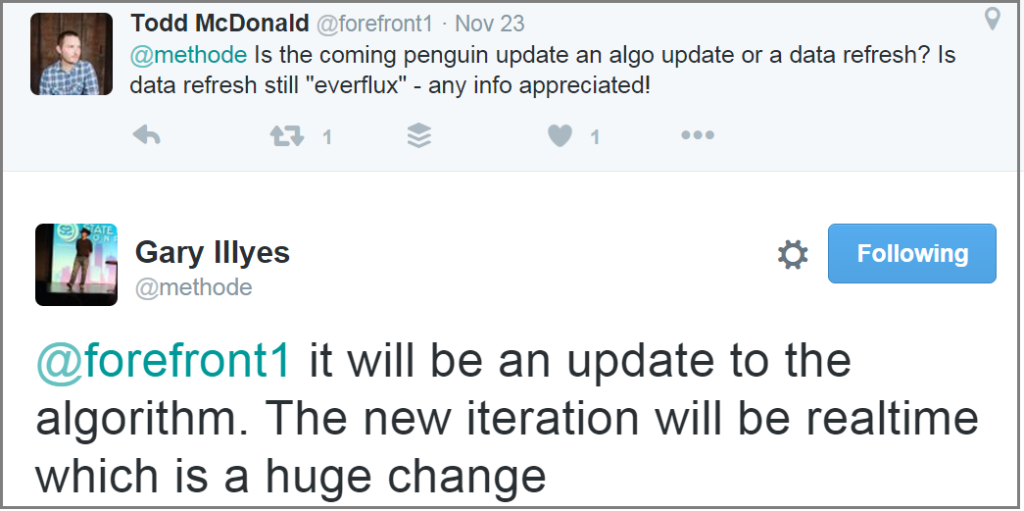
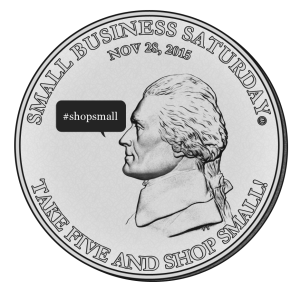 November 27th is Small Business Saturday. Here is a fun graphic we made for our online only bank client,
November 27th is Small Business Saturday. Here is a fun graphic we made for our online only bank client, 